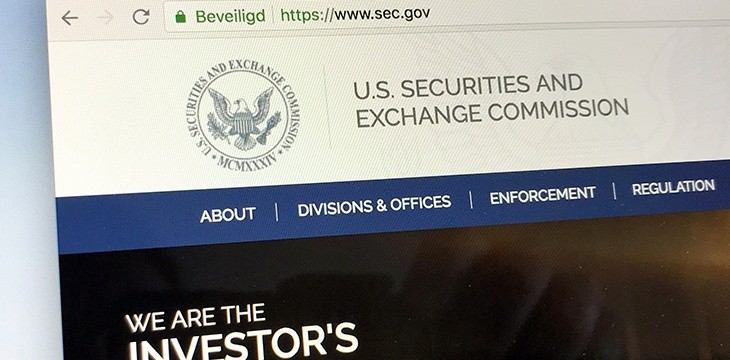|
Getting your Trinity Audio player ready...
|
Hester Peirce, a commissioner with the U.S. Securities and Exchange Commission (SEC), is known affectionately to many in the cryptocurrency space as Crypto Mom. This is due to her continued support of the space and her attempts at trying to get the SEC to have a softer touch when it comes to addressing companies in the industry. Once again showing her support, Peirce has now presented a new initiative that, if approved, could help the Bitcoin ecosystem evolve in ways never before possible.
The SEC, as evidenced by its continual attacks on crypto initial coin offerings (ICO) and other projects, has dedicated a lot of resources to controlling the crypto industry. However, Peirce wants the financial regulator to ease up and has proposed a three-year “safe harbor” period for projects within which they could work without fear of facing the commission’s wrath. She presented the proposal during the International Blockchain Congress yesterday in Chicago, and offers a solution that would allow startups to work from their initial sale to development before being scrutinized under the criteria of the Howey Test, which is used to determine whether or not an asset should be defined as an investment contract.
Crypto Mom isn’t necessarily proposing that the SEC turn a blind eye toward development projects – investors need to be protected along the way. However, she suggests that an “initial development team” be involved to oversee the project’s lifecycle until it reaches what she dubs “network maturity.”
Her proposal adds, “The definition of Network Maturity is intended to provide clarity as to when a token transaction should no longer be considered a security transaction but, as always, the analysis will require an evaluation of the particular facts and circumstances.”
With supervision in place, projects would be held accountable if they didn’t adhere to the rules. The idea is not to provide immunity to the endeavors, but to help support innovation, something that is currently lacking in the regulatory environment in the U.S.
Peirce adds, “Admittedly, the liquidity condition may surprise observers of SEC staff positions in which attempts to facilitate secondary trading have been viewed as indicia of a securities offering. In the context of the safe harbor, by contrast, secondary trading is recognized as necessary both to get tokens into the hands of people that will use them and offer developers and people who provide services on the network a way to exchange their tokens for fiat or cryptocurrency.”
It isn’t clear if any other commissioners are supporting the proposal, or when a final decision whether or not to accept it might be made. Given the anti-crypto stance held by SEC Chair Jay Clayton, however, finding approval might be difficult.

 02-27-2026
02-27-2026 




